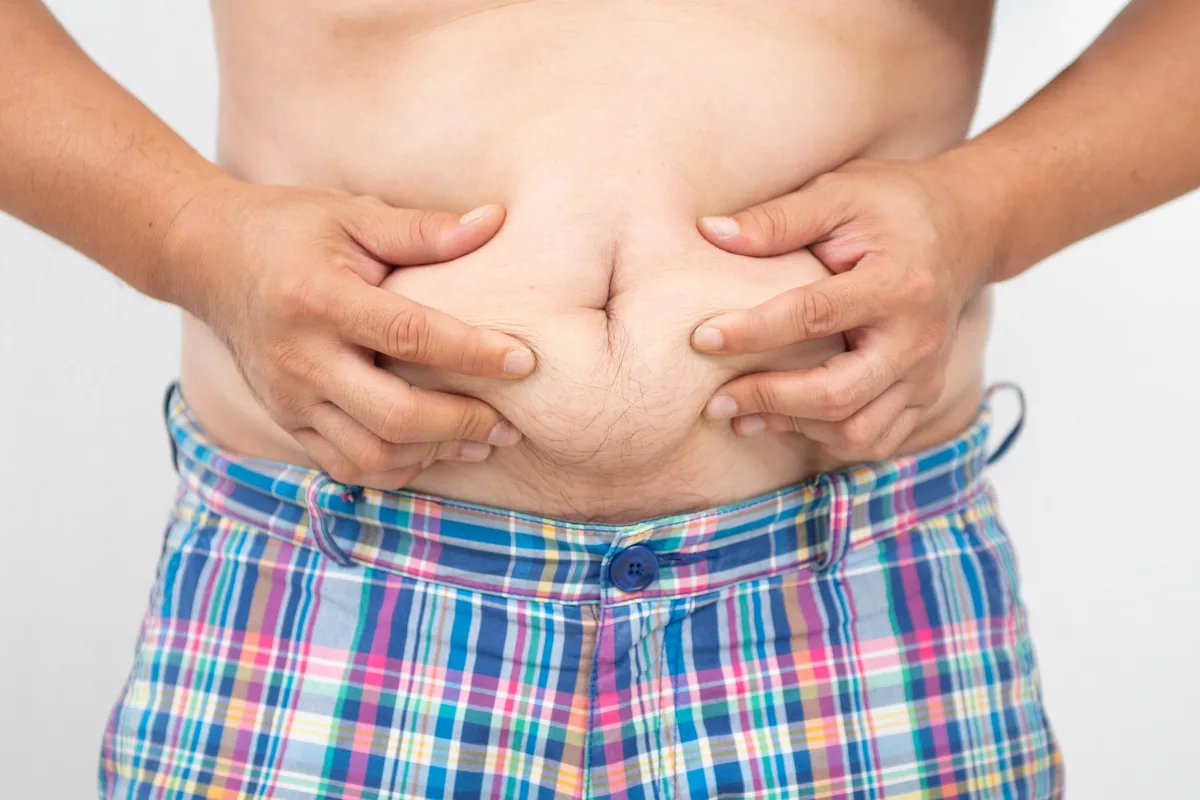
Men are facing a testosterone crisis – these 15 fixes will turbocharge the essential hormone
Testosterone is critical for the health and athletic performance of men (and women). So it is troubling that multiple studies suggest men’s testosterone levels are tanking worldwide.
One study in the Journal of Clinical Endocrinology & Metabolism traced a “substantial” drop in men’s testosterone levels since 1987, at a rate of 1% each year.
Another paper in European Urology Focus found that 20% of younger men now have low testosterone levels. What is happening? And is this cause for mass male panic?
Modern men – particularly athletes with a keen interest in physical performance – deserve an urgent hormonal health update, beginning with a clarification of why testosterone matters.
Driving growth through early life, in adulthood it supports everything from sperm production to red blood cell creation, muscle strength, bone density, memory performance and energy levels.
A worldwide drop, then, is bad news for men’s health, with studies linking it to heart problems, obesity, high cholesterol, diabetes, anaemia, osteoporosis, high blood pressure, erectile dysfunction, infertility and sleep disturbances, plus mental issues such as irritability, low energy, poor self-esteem and weak concentration.
In fact, low testosterone is now associated with a 35-40% higher risk of premature death.
Explanations for this disturbing global decline range from the ageing population to sedentary jobs and the side-effects of drugs such as antidepressants.
But almost all experts agree the drop is linked primarily to unhealthy modern lifestyles and the rise in obesity and diabetes.
The seminal European Male Ageing study found that 2.1% of men aged 40-79 suffer from medically low testosterone (low enough to require treatment), but another 20% experience sub-optimal testosterone levels (not low enough to require medical treatment, but still likely to impair their everyday health).
And for most of those men, low testosterone was linked to existing health problems, such as obesity.
“It fits the narrative that worldwide we are overall less healthy than we were,” explains Dr Channa Jayasena, a specialist in reproductive endocrinology at Imperial College London.
“The men with the lowest levels of testosterone tended to be the ones who are the least fit, who have obesity, who are on the most medications or who are most ill.”
In other words, for most modern men with low testosterone, the issue is the result – not the cause – of their other health problems. “To a certain extent, you can lower your chances of low testosterone by incorporating health promotion into your life.”
In medical terms, low testosterone is diagnosed through a combination of blood tests and symptoms.
A normal level ranges from around 8-10 nmol/L (nanomoles per litre) of blood to 30-31nmol/L. And symptoms include fatigue, depression, anxiety, irritability, low libido, erectile dysfunction, reduced strength, night sweats and poor memory.
Low testosterone can be caused by genetic conditions, injuries and hormonal disorders. But for most men, lifestyle factors appear to be the primary cause.
It is worth noting that men do experience a natural but harmless drop in testosterone as they age, at a rate of 2-3% per year, from the age of 30 onwards.

But the oft-cited media term ‘male menopause’ is misleading. All menstruating women experience the menopause, which involves a rapid decline in hormone levels.
Most men do not suffer from low testosterone, while most age-related hormonal changes are slow and inconsequential. “You shouldn’t expect to be the same man at 80 as you were at 18,” says Dr Jayasena.
If you are one of the 2.1% of men who have medically low testosterone levels, help is available through the NHS in the form of testosterone injections, gels or patches.
But if you are among the 20% of modern men who have sub-optimal testosterone levels (low but not requiring medical intervention), positive lifestyle changes can help you get back on track. Here are 15 science-backed strategies to get you started.
Blast belly fat

It appears that obesity is a major cause of low testosterone. That is because body fat contains an enzyme that converts testosterone into the female sex hormone, oestrogen.
In fact, one American research paper found that every one-point increase in a man’s Body Mass Index (BMI) is associated with a 2% decrease in testosterone. Gynecomastia – the medical term for ‘man boobs’ – is one sign of this hormonal imbalance.
That makes the solution pretty simple: from cutting down on saturated fats in your diet, to cranking up your fat-burning workouts, losing body fat can revitalise your testosterone levels.
A reassuring study by the Endocrine Society found that when 900 overweight men shed weight, they slashed their chances of low testosterone by 50%.
Lift dumbbells
Lifting weights will crank up your testosterone, according to a study in the Asian Journal of Sports Medicine.
Multi-muscle compound movements such as squats and deadlifts are particularly effective, according to Pennsylvania State University.
And lifting heavy weights at 80-85% of your one-rep max also works well, according to the University of Connecticut.
But the good news is that any weight training will help. A study in the journal Human Reproduction found that even moderate-intensity weight training elevates testosterone levels.
And the results can be fast: a Spanish study found that men who did strength training three days a week enjoyed elevated testosterone levels after just four weeks.
Crank up the cardio
Routine cardiovascular exercise will elevate your hormonal health and burn off testosterone-wrecking body fat.
One Japanese study found that men who engaged in aerobic exercise for up to 90 minutes per day, three times per week, experienced a rise in testosterone after just 12 weeks.
HIIT your hormones hard

High-intensity interval training (HIIT), such as 10x 30-second sprints or sweaty indoor spin classes, will protect your hormones.
A paper in the Journal of Clinical Medicine found that three HIIT sessions a week spiked testosterone by 36% after only eight weeks.
Follow the Mediterranean diet
Despite wacky claims in dark corners of the internet, there is no magic food ingredient that will boost your testosterone.
But a healthy overall diet will protect your hormonal health. A study in Current Research In Food Science found that men who adopted a Mediterranean diet significantly increased their testosterone levels.
Focus on fruit, veg, whole grains, fish, lean meat and healthy fats such as olive oil, avocado and nuts.
Dodge inflammatory food

Protect your testosterone by cutting down on inflammatory foods, such as processed foods, high-glycaemic-index food (such as refined carbohydrates) and saturated fat.
Research in the journal Nutrients linked a high consumption of pastries, desserts and takeaways with low testosterone.
Eat more oily fish
Not all fat is bad. Omega-3 fatty acids, found in salmon, mackerel and sardines, have been shown to help with testosterone synthesis.
These fatty acids support cell membranes in the testes, where testosterone is produced.
Don’t get too skinny
Endurance athletes beware: shifting excess body fat is good for your hormonal health, but turning yourself into a skeleton is not.
Testosterone is produced from cholesterol, and severe calorie restriction will impair its production.
A study by the Universities of Worcester and Warwick found a strong link between low-fat diets and low testosterone.
Get some daily vitamin D

Good news for cyclists and runners: several studies link outdoor exercise with healthy testosterone levels.
This may be because it boosts vitamin D – the ‘sunshine vitamin’ which is produced when skin is exposed to sunlight.
Research in the journal Hormone and Metabolic Research has linked healthy vitamin D levels to higher testosterone levels.
Over winter, consider using a supplement: a study in the World Journal of Men’s Health linked vitamin D supplements with increased testosterone levels.
Zero in on zinc
Zinc, an essential mineral found in red meat, poultry, beans, oats, eggs, nuts and grains, supports healthy testosterone production, which is why research in the journal Nutrition found low zinc levels are linked to a drop in testosterone.
Most men can get enough zinc from a balanced diet. But consider a supplement if your diet is zinc-deficient: research suggests vegetarians and vegans are most at risk.
Cut back on booze
Bad news for boozers: testosterone levels can drop within just 30 minutes of consuming alcohol.
Australian research found that heavy drinking disrupts the body’s hypothalamic–pituitary–adrenal axis activity, and causes inflammation and oxidative stress, leading to a decline in testosterone.
Stick to the NHS guidelines of no more than 14 units (6 pints of 4% beer) per week. But the less, the better.
Eat more green leafy veg
Make your dinner plate greener. Cruciferous vegetables – such as broccoli, cabbage, cauliflower, kale and brussels sprouts – contain the phytonutrient indole-3-carbinol (I3C), which helps the body eliminate estradiol – a testosterone-damaging oestrogen.
Get 7-8 hours of sleep
Testosterone and sleep are intertwined. Most testosterone release occurs during the rapid eye movement (REM) stage.
And a lack of sleep also releases the stress hormone cortisol, which blocks testosterone production. The University of Chicago found that men who got only five hours of sleep suffered a 10-15% drop in testosterone the next day.

Improve your sleep by sticking to a regular sleep routine: research in Andrology found that 7-8 hours per night is a healthy target for middle-aged men.
Learn to chill
It is not just a bad night’s kip that will mangle your testosterone levels: research in Frontiers in Molecular Bioscience found stress also spikes the testosterone-hampering hormone cortisol.
So whether you tune into classical radio or enjoy walks in the park, allocate dedicated time each day to soothing your frazzled mind.
Don’t overtrain
Exercise supports hormonal health, but don’t overdo it with extreme endurance training or excessive HIIT workouts.
A study in Andrology found that recreational athletes who trained 4-5 hours per week enjoy better hormonal health than elite athletes who train 4-5 days per week.
Always bank plenty of rest days: your hormones depend on it.
First Appeared on
Source link






